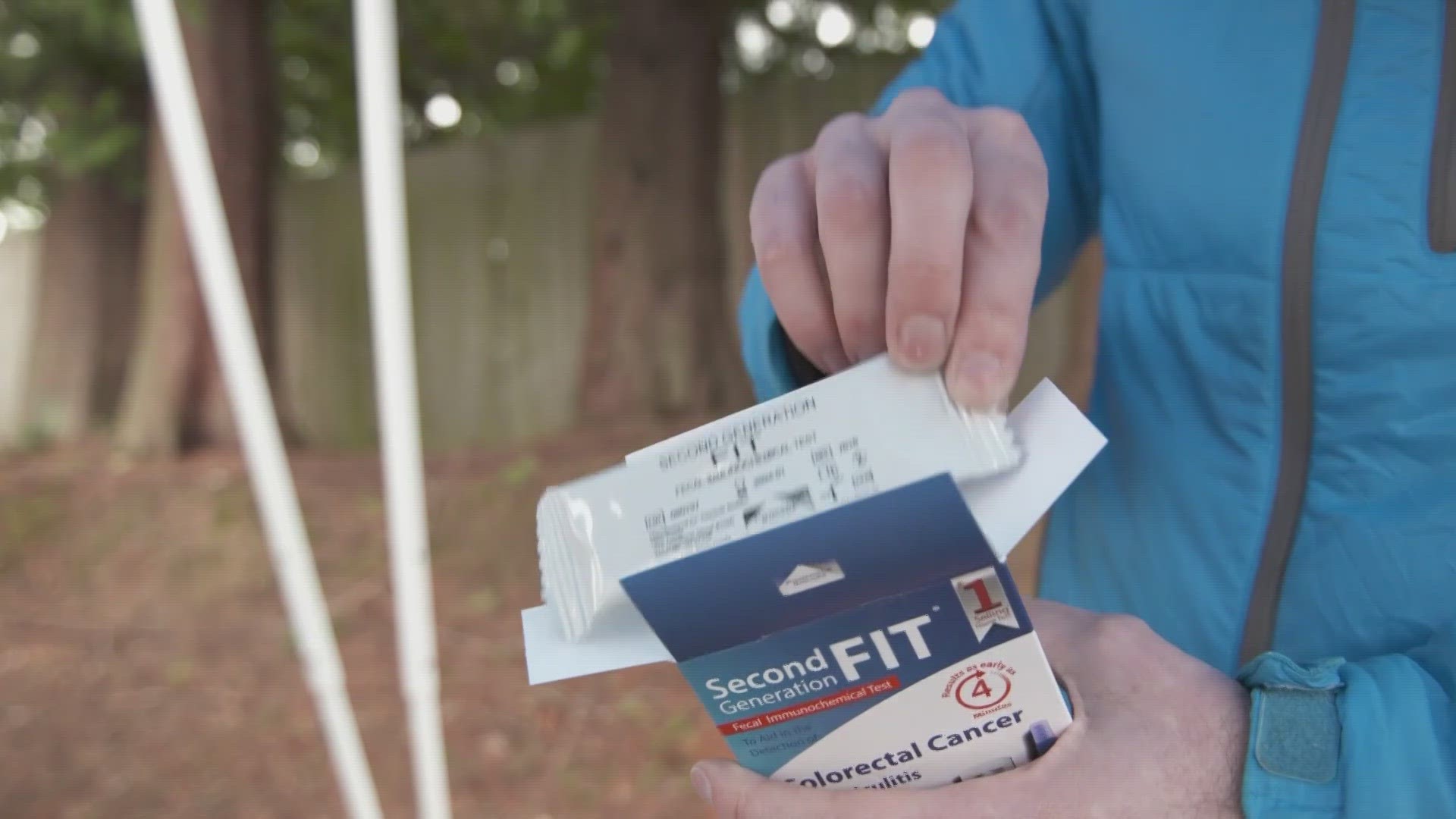SEATTLE — Colorectal cancer is among the top leading cause of cancer-related deaths in the U.S., according to the American Cancer Society. It's why doctors say screenings are so critical.
As more cases among younger people are being documented, healthcare providers stress that if patients are having symptoms, get tested. Even if no symptoms are present, they urge people to still get tested.
For the women KING 5 talked to for HealthLink, trusting their gut, saved their lives. Cherie Enholm was 47 years old when she started noticing symptoms.
"I was constipated. I was bloated. I was nauseous most of the time," Enholm said.
Cancer was the last thing on her mind.
"Old men got colon cancer. It wasn't something that was even on my radar. I had no clue," Enholm said.
When she turned 50, her symptoms persisting, her doctor told her to take an at-home stool test, which showed signs of blood — a red flag. Her follow-up colonoscopy then revealed an egg-sized tumor in her colon.
"I just started to cry because how do you have colon cancer?" Enholm said.
Enholm was in her 40s when doctors said she may have begun to develop cancer. In fact, cases diagnosed among people aged 45 to 49 are going up, according to recent statistics.
"It's not entirely clear yet why that's happening. There's active research being done in that area," said Dr. John Dunn, medical director of knowledge and implementation at Kaiser Permanente in Seattle.
It's why screenings matter more than ever.
The Centers for Disease Control and Prevention and the American Cancer Society recommend people with an average risk of colorectal cancer and no family history of it, begin screening at age 45.
A colonoscopy every ten years for this age group is the standard method.
Those with average risk may also take an annual, at-home test such as the fecal immunochemical test, or FIT, which looks for microscopic blood in the stool. There are also other at-home test options available, which should be consulted by your physician.
Dunn said one test, or the other, isn't better or more accurate. The point is, just do it.
"The guiding principal behind recommendations for colorectal cancer screening is that the most effective test is the one that's going to get done," Dunn said.
That was the message at a colorectal cancer community awareness event in Kent this month, hosted by New Beginnings Christian Fellowship.
Dr. Rachel Issaka, a gastroenterologist and director of the colon cancer screening program at Fred Hutch Cancer Center, said certain groups may be more at risk.
"In the United States, we know that black people and Native American Alaska Native individuals are more likely to die from this disease than any other groups," Issaka said.
This is largely due to a lack of awareness and testing, according to event organizers.
Frankie White, who works in Bellevue, was among the participants in the Kent event to increase awareness by sharing her experience with rectal cancer when she was only in her mid-30s.
"It was sort of shocking. You see people at that age, aren't diagnosed with cancer, rectal cancer, but I was and because I was so young, the cancer was more aggressive," White said.
White underwent surgery and chemotherapy and survived.
Like White, Enholm considers herself among the lucky ones and adds, people, shouldn't feel timid about sharing what's going on in their gut.
"You know, don't be embarrassed to death. It's poop. You gotta be able to talk about it. You gotta be able to advocate for yourself. If something's not right in your body and you know it, find a way to communicate that," Enholm said.
Preventative screening measures for colon cancer are covered by the Affordable Care Act. A FIT is typically about $20 or covered by insurance.

